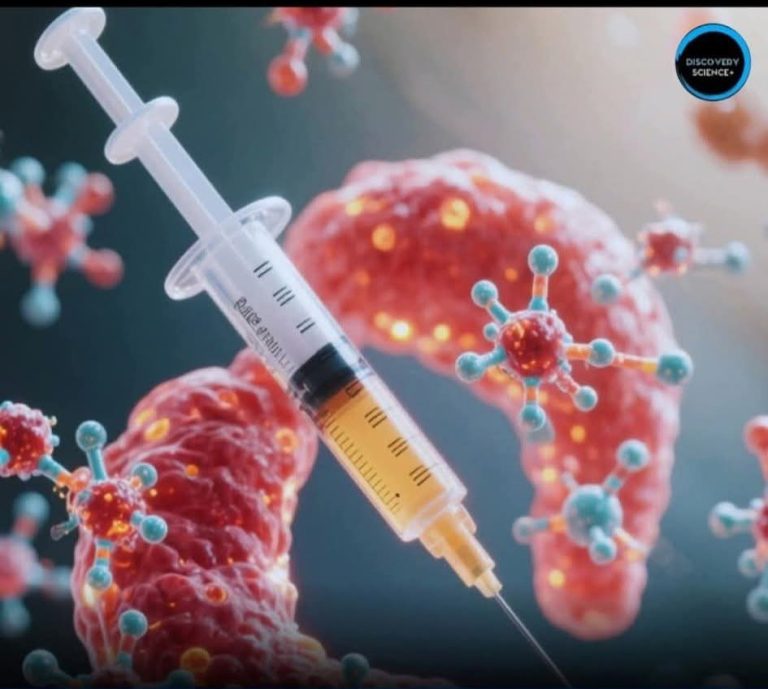The Federal Government of Nigeria has launched the Innovative Cancer Medicine (ICM) Demonstration Study, a landmark initiative designed to expand access to advanced cancer immunotherapy for Nigerian patients.
Unveiled on Tuesday at the National Hospital, Abuja, the programme — the first of its kind in Sub-Saharan Africa — will provide free, life-saving treatment to eligible patients battling metastatic colorectal cancer.
A collaboration between the Federal Ministry of Health and Social Welfare, the Clinton Health Access Initiative (CHAI), the Parker Institute for Cancer Immunotherapy (PICI), Bristol Myers Squibb (BMS), and Roche, the 18-month study will offer 30 Nigerian patients world-class immunotherapy, free diagnostics, follow-up care, and comprehensive support.
Minister of State for Health and Social Welfare, Dr. Iziaq Salako, said the initiative underscores President Bola Tinubu’s commitment to transforming cancer care and reducing medical tourism.
“Today’s milestone — the enrolment of the first Nigerian patient — represents hope. Hope that patients in low- and middle-income countries no longer have to wait decades to access life-saving innovations,” Salako said.
He noted that colorectal cancer remains one of Nigeria’s most aggressive cancers, claiming over 5,900 lives annually due to late presentation and limited access to modern treatment.
According to GLOBOCAN, Nigeria records over 124,000 new cancer cases annually, with treatment costs driving much of the nation’s medical tourism. To address this, Salako revealed that the government plans to establish six Regional Cancer Centres — three already commissioned — with record funding for cancer infrastructure in the 2025 federal budget.
Eligibility for the ICM programme is open to adult Nigerians diagnosed with metastatic colorectal cancer. Assessments and enrolments will be conducted at the National Hospital, Abuja, with participation open to patients nationwide.
“Cancer treatment should not be a privilege. Every Nigerian deserves access to innovation and survival,” Salako affirmed.
Prof. Bello Abubakar, the study’s Principal Investigator, described the project as a turning point in Africa’s cancer fight.
“This is the first time such a study is being conducted in Sub-Saharan Africa. For the first time, Nigerian patients can access modern cancer cures without travelling abroad,” he said.
Valued at about ₦7 billion, the project is fully funded by international partners. Abubakar clarified that the ICM is not a clinical trial, but a demonstration of feasibility, as the immunotherapy drugs are already approved for clinical use globally.
Dr. Funke Fasawe, CHAI Country Director, emphasized that the initiative proves world-class cancer care can be delivered locally.
“Every element — from drugs to diagnostics to transportation — is free for patients. This is not charity; this is justice in global healthcare,” she stated.
Dr. Martin Murphy, Co-Founder of the Society for Translational Oncology, hailed the effort as “the dawn of a new era in cancer care on the continent.”
The one-year study, with a six-month recruitment phase, will monitor patients receiving a ₦9.5 million immunotherapy regimen, tracking treatment responses and side effects in real time across Sub-Saharan Africa and China.
Abubakar added that the National Hospital, Abuja, now conducts microsatellite instability (MSI) testing using the Roche Ventana platform, a major leap in local cancer diagnostics.
Meanwhile, Prof. Abidemi Omonisi, President of the Nigerian Cancer Society (NCS), raised concern over the rising incidence of colorectal cancer among young Nigerians, attributing it to poor diets, sedentary lifestyles, and late hospital visits.
He called for early detection, nationwide screening, and stronger public awareness to curb preventable deaths.


